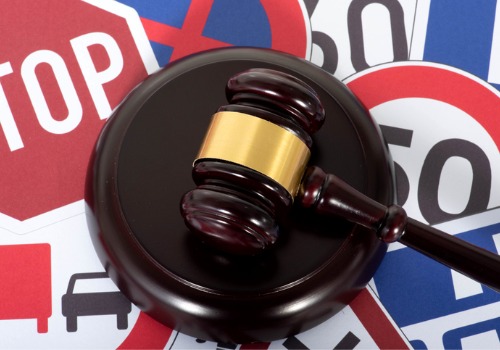
Should You Fight a Traffic Ticket?
If you spend any time driving, you’re likely to have a run-in with an officer at least once in your life, and unfortunately, for reasons you’re not likely to be happy about: traffic tickets! As good at driving as you claim to be, mistakes are sometimes made. Otherwise, the mistake might be the officer’s handling of your pull-over or in issuing your ticket. Regardless, when you receive a traffic violation, what can you do? Should you fight the violation in traffic court or “take your lumps” and pay your fine? It might be a better question: is it worth fighting your traffic ticket in court? The answer: it depends! Allow Borsberry Law to run through a few scenarios where you should and shouldn’t ask an attorney for help.
How Bad Are the Consequences?
Sometimes, the time, money and effort it takes to fight a traffic ticket is more than it’s worth just paying for the ticket. However, Illinois follows a point system for traffic violations. While a few points might not impact you, all it takes is several minor infractions and a more severe violation, and you could risk having your license suspended! Additional consequences of traffic violations can include:
- Paying fines
- Attending traffic school
- Increased insurance rates
- Demerit points on your driving record
- Jail time (uncommon for minor traffic violations)
Sometimes, paying your fine is preferential to missing work and spending a day in court to fight your ticket. Or, if you wish to reduce the impact of your fine, going to traffic school can lessen your fines and limit the hit of points to your driving record. However, if you face heavy fines, substantial insurance rate increases, or potential jail time, hiring an attorney and fighting your ticket is the route to take.
Is There a Good Chance of Having Your Ticket Dropped?
While Borsberry Law can’t guarantee the results of your traffic violation trial, we can say your chances at a positive outcome are significantly improved with the help of an attorney. Additionally, suppose there is a solid factual and legal basis for your innocence or mistakes made in the initial pull-over or arrest. In that case, your attorneys can get to the bottom of it. Some viable defense strategies for your traffic ticket include:
- Exact Interpretation of a Law – Police officers don’t necessarily have a detailed understanding of the law they accuse you of breaking. If a reading of a law finds you did not violate it in the manner described by an officer and you can prove it, a judge will accept this outcome.
- Equipment/Procedure Inaccuracies – Did you know radar guns need recalibration every 30 to 60 days? It’s true! And if it’s found the equipment used to assess a speed violation wasn’t adequately calibrated in the first place, that makes an officer’s accusation moot. Similar defenses can occur when challenging the accuracy of sobriety tests and other police procedures/monitoring equipment.
- Ticket Mistakes – Most mistakes made in initial ticketing won’t impact the state of your case. However, if errors on a ticket are especially egregious, there can be an argument to have your case dismissed. While this defense is less common, it’s still worth considering when fighting a traffic ticket.
Defenses That Won’t Work
Perhaps you have a good reason for speeding through a school zone or erratically driving; you’re always welcome to argue your side of a story to a judge! However, fair warning, excuses or claiming ignorance of a law won’t get you far in court. In the best-case scenario, in cases where your excuse seems plausible enough to explain why you violated a traffic law, you might receive leniency from a judge in the form of reduced charges and penalties. However, if there isn’t a legal reasoning behind why you did or didn’t violate a traffic law, fighting your ticket won’t produce positive results. Defenses that won’t work include:
- Claiming ignorance of a law
- Saying you weren’t the only one breaking a law
- Claiming no one was hurt
- Disputing an officer’s description of events without evidence
- Sad stories or excuses

What’s Next?
If you’ve concluded that fighting your ticket is not worth the effort or wouldn’t end well in court, paying your ticket and moving on is your best option. Additionally, as mentioned above, if there were extraneous circumstances surrounding your ticket (racing to the hospital for a medical emergency, for example), a judge may be inclined to reduce your sentencing. Or, if you fear not being able to pay for a fine, talk with your judge, and a payment plan or lessened charges can be discussed.
However, if you believe there’s merit in fighting your ticket, you feel you were wrongly accused of a violation, or the consequences of accepting a ticket are too substantial to ignore, allow Borsberry Law to assist! Our experienced team of attorneys is well-versed in Illinois traffic law, increasing your chances of reaching an acceptable outcome in your case. To learn more about Borsberry Law or request a consultation, contact us today at 309-637-9000. We are located at 203 NE Jefferson St, Peoria, IL 61602.
